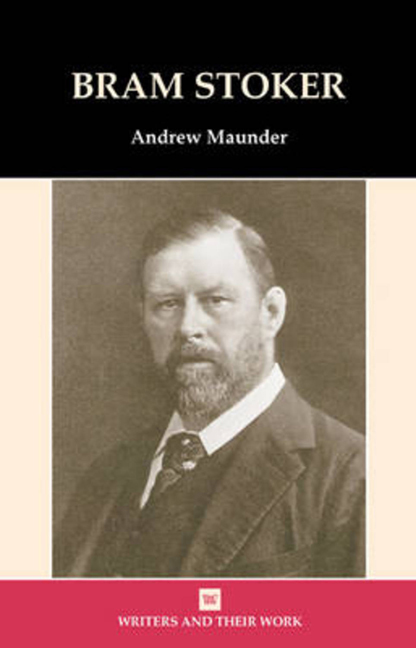Conclusion
Summary
This book has sought to trace some of the issues of identity, gender and race through a sample of Stoker's texts written at different stages in his career. As I have suggested, Stoker is in many ways a wide-ranging writer, of more complexity than he has been credited for; a writer who was responsive to the social concerns of his day and to the expanding market for fiction that emerged in the 1890s and 1900s. This points us toward Stoker's status as a very accommodating writer whose texts can be approached through many frameworks.
The emphasis placed on Stoker as a writer who experimented with different fictional sub-genres - the historical romance, the adventure story, the temperance novel, the ghost story, the Gothic novel and the ‘New Woman’ novel - is an indicator of his sense of himself as a commercial writer. It also reminds us that it is insufficient to accept the rigidity with which forms like the vampire or horror novel have been applied as containers for his work and which, for the most part, have been used to find the rest of his fictions less interesting than those of his contemporaries. It is true that the bulk of the critical attention which Stoker has received is still directed at Dracula but the evidence of contemporary reviews reminds us that Stoker's original readers and reviewers found it rather more difficult to contain him in a single category or via single work. Other novels and stories merit attention, not only as examples of popular fiction but as cultural documents that engage late-Victorian and Edwardian ideas on identity, gender, race, morality and the family.
Stoker was not a literary rebel and the critics of the day and his bourgeois readers generally found his fiction acceptable (though there were exceptions, as we have seen). Nonetheless, one of the aims of this short book has been to suggest that Stoker's novels are less simplistic and more challenging than they might at first appear. That this is so in the case of Dracula is of course a critical commonplace. Yet this study has also attempted to raise questions about the engagement and ideological content of Stoker's fiction more generally. This way of reading Stoker's works, as texts that engage with important nineteenth and early twentieth-century political and cultural ideas, has been one of the most positive developments in recent criticism.
- Type
- Chapter
- Information
- Bram Stoker , pp. 142 - 143Publisher: Liverpool University PressPrint publication year: 2005



